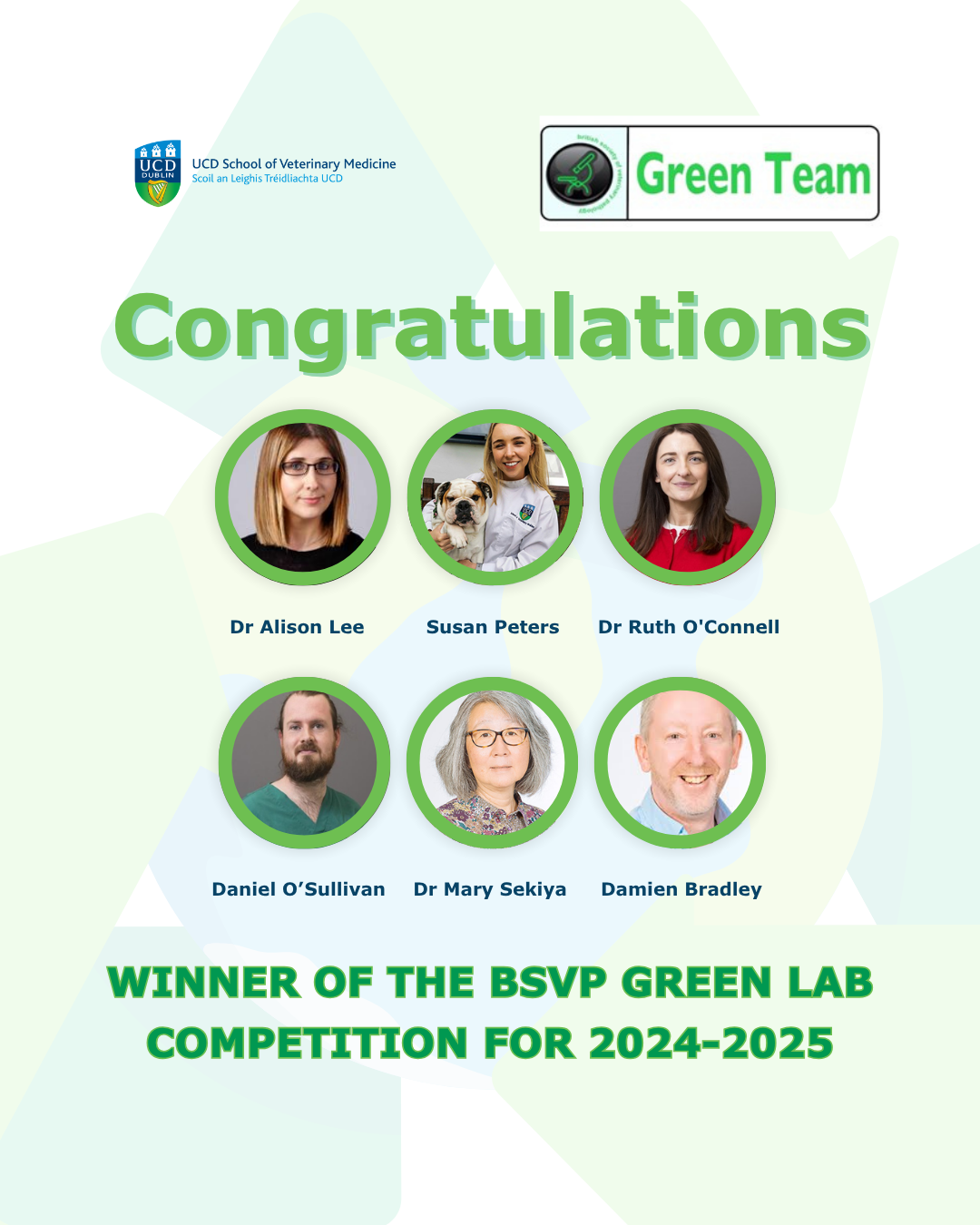Celebrating Sustainable Science: Winners of the 2024–2025 BSVP Green Labs Competition
Vet Sustain is always excited to showcase innovation that makes veterinary medicine more sustainable. That’s why we're thrilled to share the results of the 2024–2025 British Society of Veterinary Pathology Green Labs Competition—an award that recognises practical, impactful steps towards greener veterinary pathology laboratories.
Vet Sustain
The British Society of Veterinary Pathology (BSVP) launched the Green Labs Competition to encourage laboratories to rethink how they use resources, manage energy and waste, and embed sustainability into everyday practices. The competition especially seeks entries focussing on tackling sustainability issues specific to pathology labs, such as chemicals, plastic histology cassettes, or transport of formalin-fixed samples, but entries dealing with any aspect of sustainability are also welcome. This year, two standout projects demonstrated that even well-established labs routines can evolve and change for the better.
Winner:Chemical recycling at the University College Dublin School of Veterinary Medicine: A Preliminary Cost-Benefit Analysis
Team Lead: Alison Lee
Alison Lee and her team undertook a detailed cost-benefit analysis to explore how their lab could reduce the environmental and financial cost of chemical waste—specifically, formalin, xylene, and ethanol. These chemicals are widely used in histology labs, but their disposal comes at a high carbon and financial cost.
Currently, used chemicals from the UCD lab are shipped off-site for processing and disposal, sometimes internationally. The team assessed the viability of implementing an on-site chemical recycling systems (using fractional distillation or filtration) by contacting suppliers, gathering quotes, and calculating potential savings. Their findings were presented to pathologists, technicians and staff involved in budgeting and procurement, sparking conversations about chemical waste management from the perspective of all stakeholders.
What impressed the judges most was the project’s robust, business-minded approach. By building a strong financial case for recycling, the team proved that sustainability and cost-efficiency can go hand in hand.
As one judge put it: "This is a great example of practical, real-world sustainability in action."
Runner-up: Lighting replacement - Fluorescents to LED at Veterinary Pathology Group (VPG)
Team Lead: Elizabeth Alloway
Sometimes, simple changes make a big difference. The team at VPG chose to tackle the energy inefficiency of traditional fluorescent lighting by replacing it with modern LED alternatives. This switch reduces electricity use and hazardous waste materials (as chemicals such as mercury are present in fluorescent lights), and creates a more pleasant working environment for staff.
Despite budget constraints, the team cleverly integrated the lighting upgrade into the lab’s relocation plans: hence their project shows how sustainability can be part of the planning process, and not simply an afterthought. Additionally, the lab hopes to build on its work by adding motion sensors and automatic dimmers in the future to maximise energy savings.
Judges praised the initiative’s clear focus and tangible benefits, stating that “this project is a good example of practical, workplace-focused sustainability”.

Both projects show that sustainability in veterinary labs is achievable, although careful planning and consultation with all stakeholders is imperative, as well as consideration of the financial impact of proposed changes. However, whether through chemical recycling strategies or everyday improvements like LED lighting, these teams are proving that thoughtful, evidence-based action can drive real change.
Congratulations to all involved! If you’re feeling inspired, check out Vet Sustain’s Carbon Literacy for Veterinary Professionals course to start your own sustainability journey.